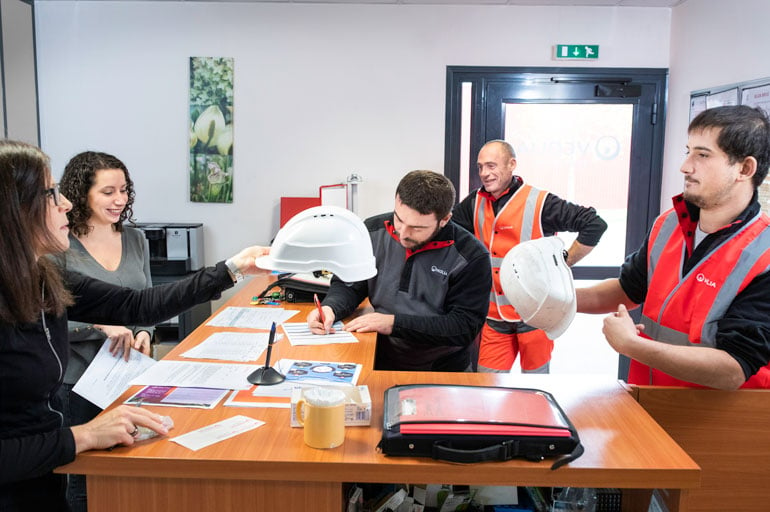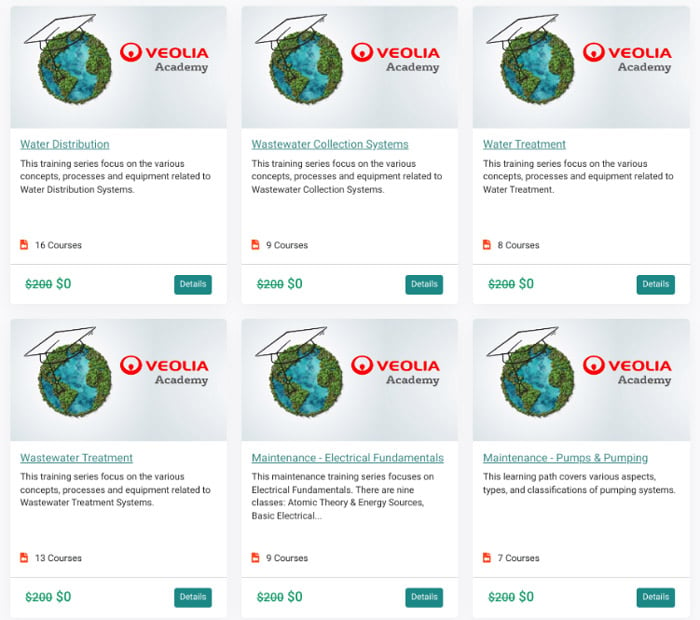Water, the essence of life, flows effortlessly from our taps, providing us with an essential resource that we often take for granted. Behind the scenes, however, water utilities face an increasingly daunting challenge in maintaining a qualified and available workforce. The demand for skilled professionals is soaring, while experienced workers are retiring, leaving critical gaps that need to be filled.
The demand for skilled water professionals is higher than ever. Clean, abundant water is essential for survival, and safeguarding its protection and management requires dedicated individuals. Moreover, the absence of qualified personnel in large investment sites, particularly within challenging operations, unplanned replacements, absence, extra shifts or even fines can lead to additional costs for water utilities.
The significance of water management becomes even more apparent when considering the economic losses caused by poor sanitation and water supply. The World Bank in its GWSP Annual Report, reveals that developing countries suffer estimated annual economic losses of US$260 billion, equivalent to 1.5% of their GDP, due to inadequate sanitation and water supply. These staggering figures underscore the urgent need for qualified water professionals to tackle the pressing challenges faced by the water industry.
In this blog post, we delve into the challenges water utilities face concerning their workforce and explore actionable recommendations to tackle these barriers head-on. The future of our nation's water supply hinges on assuring access to water for the communities by bridging the skill set divide, embracing diversity and inclusion, and inspiring new generations to carry the torch.
Continuity for our communities
Front-line workers in the water sector play a pivotal role in ensuring the well-being of communities. From providing safe and clean water for daily needs to supporting vital industries, their contributions are indispensable. To secure a sustainable and thriving future for our communities, recognizing the importance of these dedicated individuals and investing in their training and development is paramount.

Recommendation 1: Implement robust succession planning
Identifying and nurturing current water talent within water utilities helps preserve invaluable knowledge and ensures a smooth transfer of expertise. Robust succession plans are vital for a seamless transition when experienced workers retire, securing continuity and preventing knowledge gaps.
Recommendation 2: Cultivate emerging water talent
Collaborating with educational institutions and industry associations can create targeted recruitment and training programs to address the urgent need for fresh thinking in the water sector. As water management transitions from analog systems to a digital domain, powered by cutting-edge tools and technologies, curious and innovative minds are crucial.
Recommendation 3: Establish mentorship programs
Formal mentorship programs for interns and young workers play a crucial role in bridging the knowledge gap and fostering a supportive learning environment that accelerates skill development. The value of mentorship extends beyond the active workforce, as even retired talent can now contribute to its legacy through mentorship programs.
In today's digital age, mentorship opportunities can be creatively showcased through various formats like videos and webinars, enabling widespread accessibility. While in-person mentorship remains valuable, the current landscape presents an exciting opportunity to explore innovative ways to connect and collaborate.
Bridging the skill set divide: preparing the water workforce for tomorrow

A knowledge gap is emerging within the water workforce in tackling intensifying water issues like extreme weather (e.g., hurricanes and tsunamis), flooding, droughts and new pollutants as a generation of experts prepare to retire.
Advancement with cutting-edge technologies and new treatment solutions demands a skilled and adaptable workforce. By investing in professional development and embracing innovative approaches, water utilities can overcome challenges posed by evolving processes and technologies.
Recommendation 4: Foster a culture of continuous learning
Supporting ongoing professional development programs, workshops and certifications empowers employees to adapt to emerging trends and remain ahead of the curve. Continuous skills development and portable education enable the water workforce to acquire essential skills, regardless of their location.
Addressing challenges through a holistic lens
The water industry has historically had limited ability to address challenges from various perspectives. But bringing together varied viewpoints and experiences forms the foundation to address pressing environmental challenges like water scarcity and climate change. Encouraging inclusivity in water utilities can lead to improved performance and greater success in navigating pressing concerns.

Recommendation 5: Cast a wider net
Actively promoting water sector careers through job fairs, community organizations and diverse recruiting platforms fosters inclusivity and expands the talent pool.
Recommendation 6: Establish policies for inclusivity
Creating policies that promote inclusive opportunities in the water industry fosters an enriching and productive work environment, contributing to better performance and success.
Inspiring water careers for a sustainable future
Inspiring and encouraging the next generation of water workers is crucial for maintaining a skilled workforce and diversifying prospective workers. A study from Pew Research Center reveals that younger adults are increasingly motivated by their families and friends to take action on climate change, indicating their receptiveness to making a positive impact.

Recommendation 7: Share the value of water careers and connect with youths
To seize this opportunity, we must actively share the value of water careers with high school students and job-seekers, showcasing the industry's meaningful and impactful contributions.
Initiatives like “Water You Waiting For?” and Inflow, can amplify efforts to showcase the water profession to students, attracting passionate and motivated individuals to the industry.
More than ever, working in water presents an exciting opportunity to do something meaningful while earning a paycheck. The field offers an enticing and compelling environment for individuals who are passionate about making a difference. Attracting the next generation of action- and mission-oriented professionals is key to success across the board.
The challenges facing water utilities' workforce demand collective action and innovative approaches. Empowering the water workforce, embracing diversity and inclusion, and inspiring new generations will secure the future of our most vital resource. Together, we can rise above the challenges and ensure a brighter and water-abundant future for all.


